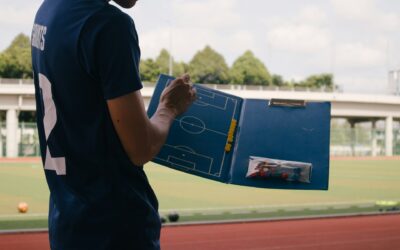Fitness coaches are crucial to getting athletes into their best shape for competitions, but what does that look like in international disability football? England partially sighted futsal player Jake Heasmanexplains how physical performance coaches help him and his teammates reach their potential.
England’s partially sighted futsal team are one of England’s para football squads not letting their disability get in the way of representing their country. As a member of the squad, I can say that winning a silver medal at the 2023 World Games and a European bronze in 2024 was not just down to the genius of the coaches and players. The physical performance coaches (PPCs) play a massive role. But how do they turn – and I cannot believe I am saying this – people like me into England internationals?
I first joined the squad at 17 years old, beyond excited to pull on the England kit. On my way to my first training camp, I thought I was physically ready. Boy, was I wrong! In my first training sessions, players ran rings around me and reacted quicker as if they could see more than me. But how? I could not get to grips with how my teammates were getting to the ball before me when some had worse visual impairments than me.
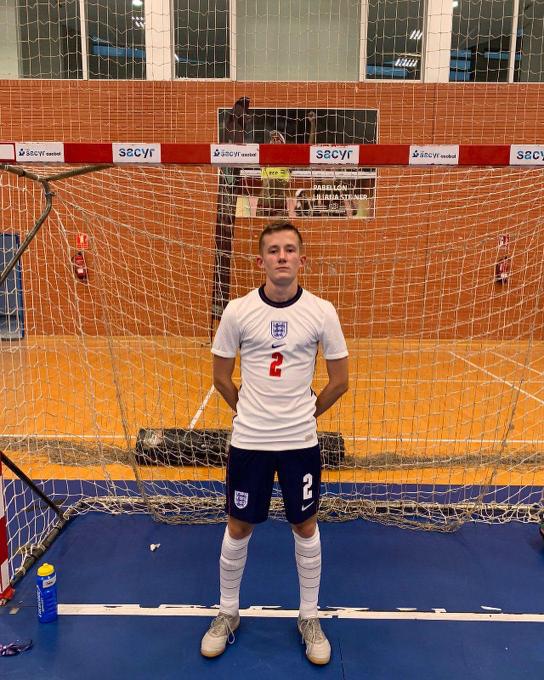
Tom Dos Santos, a PPC for England para football, says various qualities make an elite partially sighted futsal player, from “the ability to perform repeated sprints” to “having a good change of direction”. It started to click: maybe my physical attributes needed to compensate for my visual impairment. Maybe that’s why some of the lower-sighted players were beating me to the ball. Needing to develop physically, I headed to Dos Santos to see how he could help.
Dos Santos says: “Instead of thinking does someone look quicker, we think, can we quantify if someone is quicker?” Sure enough, after some partially sighted-friendly fitness tests like how high I could jump, Dos Santos handed me a programme that Dave Sims, physical performance lead for England para football, describes as ‘military-esque’. How do they even make these programmes?
“Data can be quite powerful,” Dos Santos explains. “If we understand the physical demands of certain activities, then we can better understand whether athletes need more or less training.”
Data is the key. We wear heart rate monitors to show how hard we are working during games, which gives the PPC more numbers to crunch. Even before we play games, the dreaded words that the majority of my fellow internationals shudder at are used to understand the physical limits we can push ourselves to: fitness testing. Imagine doing a bleep test and just as you reach what you think is the finish line, it becomes clear your eyes are playing tricks on you. You have to sprint another ten metres before your break. Welcome to my world. Meanwhile, Dos Santos and Sims are in their element, accumulating more of the d word: DATA. These tests provide more numbers and allow PPCs to produce harder training schedules for me! Sims says: “The programme used to be relatively generic for para football as we did not have the intel that we do now – but now for younger players, we can say this is what their relevant senior squad do.”
So, gathering data and forming programmes are the main ways the England PPC staff ensure I am at the top of my game. Let’s see if all this data gathering works.
At the European Championships in 2024, we played five games in six days and lost a player to injury in the first game of the competition. We had to be physically ready every day just to survive the tournament, let alone to compete in it. I needed to not just withstand the tournament physically, but psychologically too. Do not get me wrong, I struggle at times to remember the infinite number of set pieces we have. However, Sims says that there is a “cross over into psychology that is very profound in para football”. I resonated with this. When I play, I think: Do I know how quickly the ball is coming towards me? Am I even playing to the correct line, as sometimes we play on courts which have multiple different sports courts on? These questions help the PPC team as Dos Santos accepts players have ‘specific considerations’ that need to be contextualised, even in training programmes – so that if we misjudge the speed of a pass, for example, we are quick enough to recover from our mistake and keep the ball in play.
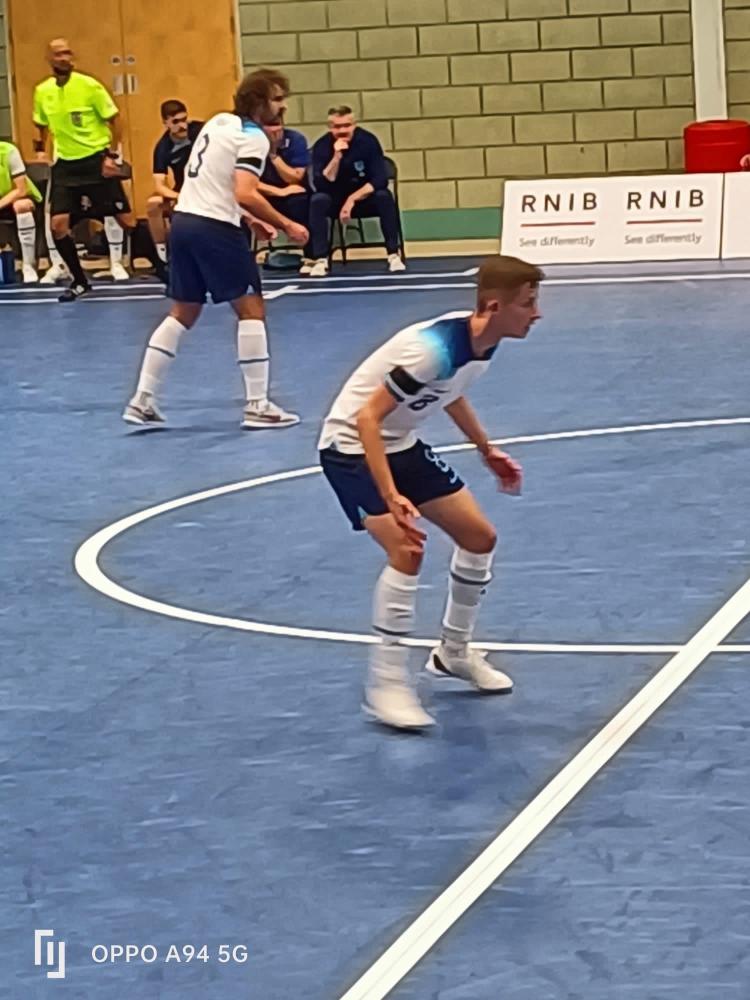
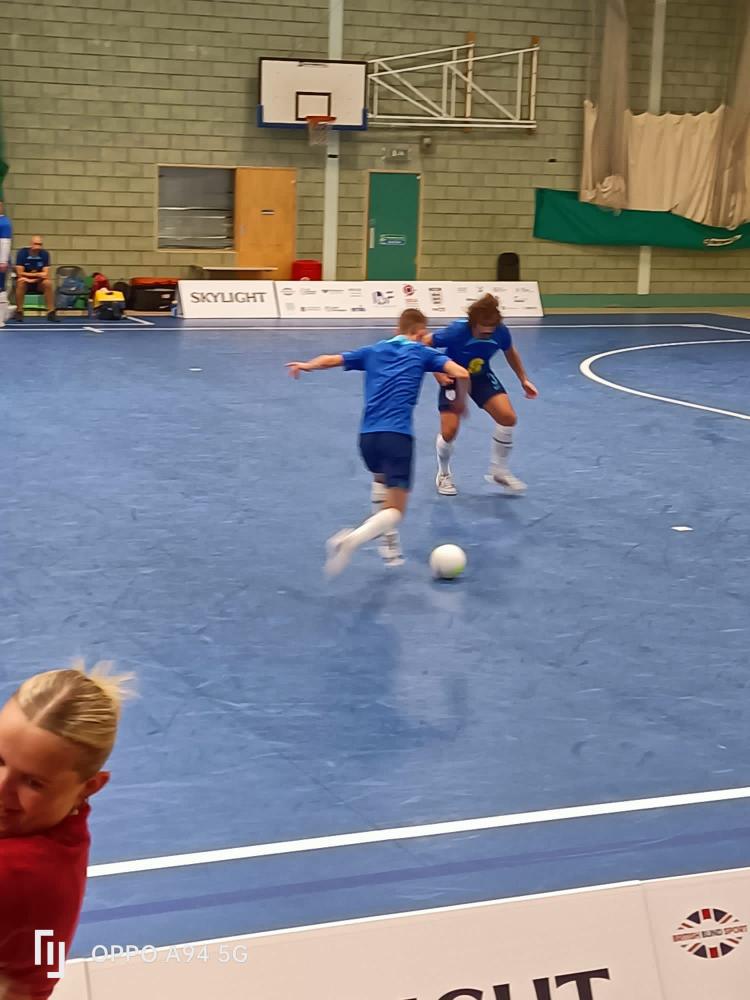
Winning a medal in 2024 highlights that a tough yet considered approach to training set us up to not only withstand the demands of international futsal but to gain success too. Sims emphasised that “the necessity is almost greater for para players than mainstream internationals” to be fit because of the intensity of tournament schedules. I know when I walk onto the court wearing the England shirt, I will be in the best physical condition of my life – even if PPCs have pushed me beyond my limits in the name of data!
I have had experts talk about the importance of data and its effect on forming elite futsal players, but is that the only component of making the best athletes in the world?
Dos Santos says: “We try to be as objective and data-driven as possible but also there is the power of communication, as data does not tell you everything.”
As a player with a visual impairment, there are many factors that affect my performance that data cannot highlight. As part of my visual impairment, I struggle with contrast, so if the colour of the ball and the court are similar, this might lead to me having a ‘bad game’ in the eyes of the data.
Dos Santos does not see the problems I face on court as excuses. He instead understands the “unique challenges and characteristics” that we players face. Sims agrees as he and his team “need a level of empathy” in terms of explaining certain exercises in comparison to how he may describe them to mainstream athletes.
Having been involved in England’s para football setup since 2010, Sims appreciates partially sighted athletes may need extra support to perform. He says: “I see you as athletes, I do not see you as someone with a disability. You are an athlete first and foremost…we will adapt so you can be the best athlete you can be.”
Dos Santos says that we as players are “the most amazing people” he has met due to the challenges we “overcome and our ability to turn them into possibilities”. Now there’s a different side to the demanding coaches who have pushed me as hard as physically possible!
Data plays a huge part in developing elite futsal players. However, PPCs need more than just statistics to produce the best players. I am a partially sighted person as much as I am a partially sighted futsal player and the PPC team combines both the data and human considerations perfectly to make me competitive on the international stage.
Sidelines Recommends

Why the mind matters in overcoming injury
The treatment room is only one part of the return from injury. Dr Carl Bescoby explains how he helps athletes heal their minds.
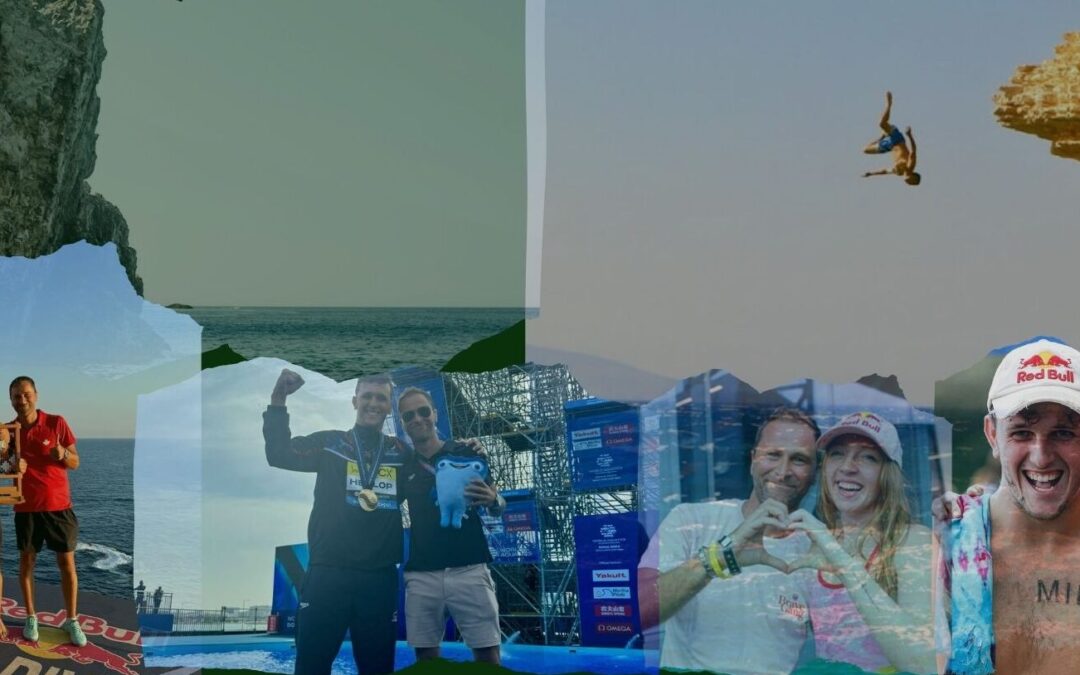
Leaps of faith: the world of elite cliff diving
From the circus to Red Bull’s World Series Cliff Diving competition, Stéphane Lapointe takes Sidelines into the world of elite cliff diving.
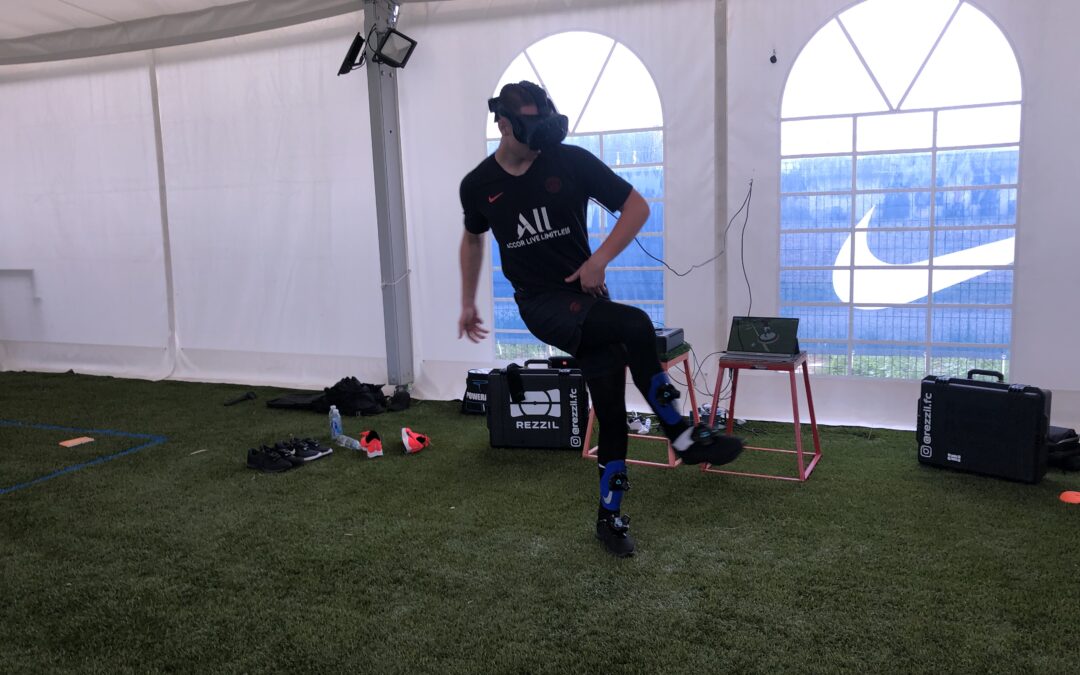
The virtual advantage: how VR is revolutionising sports training
How is virtual reality influencing the way athletes train and level up their game? Sidelines dives into the future of sports training.

